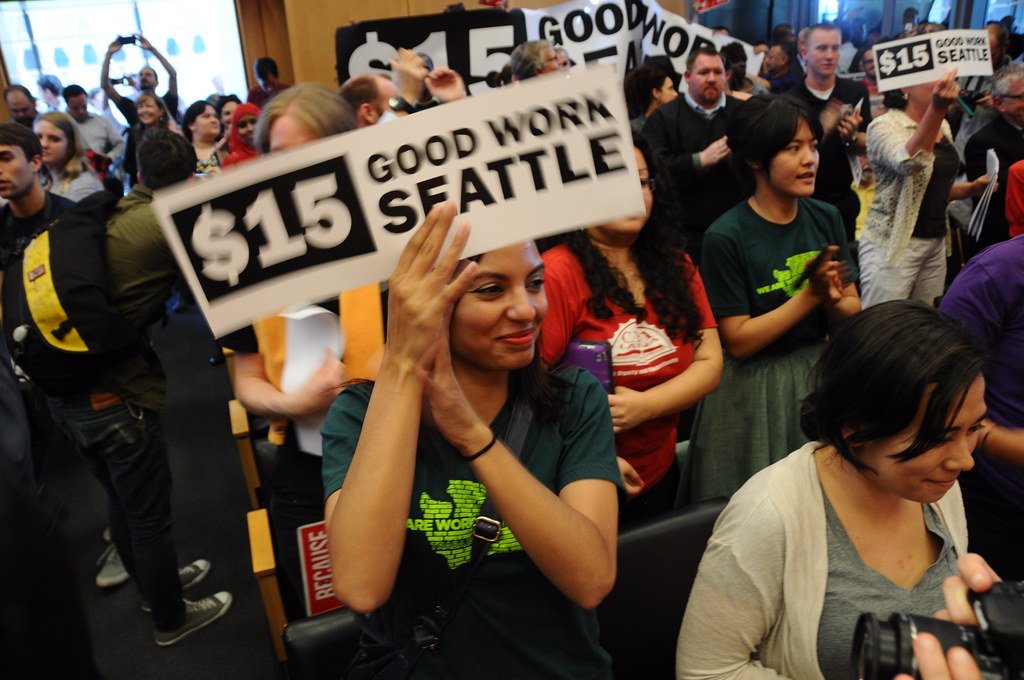
Background
A deal’s a deal: No subminimum wages for Seattle workers.
We urge city officials to reject the effort by some restaurant industry lobbyists to roll back our ten-year-old minimum wage law and create a permanent subminimum wage for tipped workers in Seattle.
Our minimum wage law is working
Ten years ago, Seattle made history when business groups, worker organizations, elected officials and community leaders came together and reached an agreement on the nation's first $15 minimum wage. The central compromise: a lengthy phase-in period that ensured every worker would eventually reach the same inflation-adjusted minimum wage, while allowing additional time for smaller businesses to see the benefits of increased demand before they had to pay the same rate as everyone else.
And it’s working. For the past 10 years, Seattle workers have gotten raises each year to keep up with rising costs, and Seattle's economy has been among the strongest in the nation. That’s not a coincidence. Seattle is growing because we raised wages. It’s simple: when more people get paid more money, that means more customers for more businesses. When workers can afford to spend money at local community businesses, that's better for everyone.
Undoing this compromise to put a permanent subminimum wage into law would be unpopular, unwise, and would take Seattle in exactly the wrong direction.
Subminimum wages are unnecessary
Washington state eliminated the state’s subminimum wage for tipped workers back in 1988. The state raised the minimum wage for all employees without creating a special subminimum rate in 1998, and did it again in 2016. Local minimum wage laws in SeaTac, Tukwila, Renton, Bellingham, and unincorporated King County do not include any subminimum wage for tipped workers. Oregon, California, Alaska, and Nevada don’t have these kinds of subminimum wages either, though they certainly have flourishing service industries. In fact, if these restaurant industry lobbyists get their way, Seattle would become the only place on the entire West Coast with a permanent subminimum wage rate for tipped workers.
Subminimum wages slow economic growth
Once Seattle came together to raise the wage, countless cities and states soon followed Seattle’s lead, and our economy became one of the fastest growing in the nation. Now that so many states and cities have raised the minimum wage, researchers are learning how the minimum wage actually affects jobs. The most recent high-quality empirical research from the University of California convincingly demonstrates that raising wages creates jobs — and that the more you raise wages, the more jobs you create.
When businesses pay people more, they spend more locally, and our economy grows.
Subminimum wages are unpopular
The experience of Washington DC suggests just how unpopular subminimum wages are. In 2018, voters in that city passed a popular initiative to raise the minimum wage and eliminate that city’s subminimum wage for tipped workers. After aggressive lobbying from restaurant industry groups, DC’s City Council voted to override the initiative and re-establish a subminimum wage for tipped workers in the city. This move was wildly unpopular, so another initiative was brought to eliminate the subminimum wage once and for all. It passed with a remarkable 74% of the vote, even though restaurant industry lobbyists outspent labor groups by 50%.